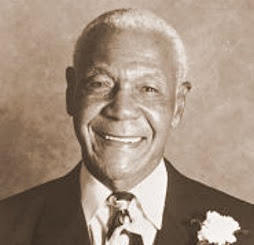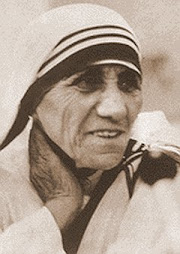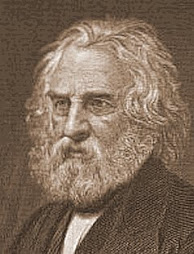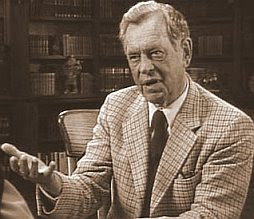It Is Well With My Soul
Written by Horatio G. Spafford
Music by Philip Bliss
When peace like a river attendeth my way,
When sorrows like sea-billows roll,
Whatever my lot, Thou has taught me to know,
"It is well, it is well with my soul."
Though Satan should buffet, though trials should come,
Let this blest assurance control,
That Christ hath regarded my helpless estate,
And hath shed his own blood for my soul.
My sin - oh, the bliss of this glorious thought!
My sin - not in part but the whole,
Is nailed to His cross and I bear it no more;
Praise the Lord, praise the Lord, oh, my soul.
And, Lord, haste the day when the faith shall be sight,
The clouds be rolled back as a scroll,
The trump shall resound, and the Lord shall descend-
Even so - it is well with my soul.
"Saved Alone"
The History behind the Hymn
by Author: James Mumford
The History behind the Hymn
by Author: James Mumford
This hymn was written by a Chicago lawyer, Horatio G. Spafford. You might think to write a worship song titled, 'It is well with my soul', you would indeed have to be a rich, successful Chicago lawyer. But the words, "When sorrows like sea billows roll ... It is well with my soul”, were not written during the happiest period of Spafford's life. On the contrary, they came from a man who had suffered almost unimaginable personal tragedy.
Horatio G. Spafford and his wife, Anna, were pretty well-known in 1860’s Chicago. And this was not just because of Horatio's legal career and business endeavors. The Spaffords were also prominent supporters and close friends of Dwight.L. Moody, the famous preacher. In 1870, however, things started to go wrong. The Spaffords' only son was killed by scarlet fever at the age of four. A year later, it was fire rather than fever that struck. Horatio had invested heavily in real estate on the shores of Lake Michigan. In 1871, every one of these holdings was wiped out by the great Chicago Fire.
Aware of the toll that these disasters had taken on the family, Horatio decided to take his wife and four daughters on a holiday to England. And, not only did they need the rest -- DL Moody needed the help. He was traveling around Britain on one of his great evangelistic campaigns. Horatio and Anna planned to join Moody in late 1873. And so, the Spaffords traveled to New York in November, from where they were to catch the French steamer 'Ville de Havre' across the Atlantic. Yet just before they set sail, a last-minute business development forced Horatio to delay. Not wanting to ruin the family holiday, Spafford persuaded his family to go as planned. He would follow on later. With this decided, Anna and her four daughters sailed East to Europe while Spafford returned West to Chicago. Just nine days later, Spafford received a telegram from his wife in Wales. It read: "Saved alone."
On November 22nd 1873, the 'Ville de Havre' had collided with 'The Lochearn', an English vessel. It sank in only 12 minutes, claiming the lives of 226 people. Anna Spafford had stood bravely on the deck, with her daughters Annie, Maggie, Bessie and Tanetta clinging desperately to her. Her last memory had been of her baby being torn violently from her arms by the force of the waters. Anna was only saved from the fate of her daughters by a plank which floated beneath her unconscious body and propped her up. When the survivors of the wreck had been rescued, Mrs. Spafford's first reaction was one of complete despair. Then she heard a voice speak to her, "You were spared for a purpose." And she immediately recalled the words of a friend, "It's easy to be grateful and good when you have so much, but take care that you are not a fair-weather friend to God."
Upon hearing the terrible news, Horatio Spafford boarded the next ship out of New York to join his bereaved wife. Bertha Spafford (the fifth daughter of Horatio and Anna born later) explained that during her father's voyage, the captain of the ship had called him to the bridge. "A careful reckoning has been made", he said, "and I believe we are now passing the place where the de Havre was wrecked. The water is three miles deep." Horatio then returned to his cabin and penned the lyrics of his great hymn.
The words which Spafford wrote that day come from 2 Kings 4:26. They echo the response of the Shunammite woman to the sudden death of her only child. Though we are told "her soul is vexed within her", she still maintains that 'It is well." And Spafford's song reveals a man whose trust in the Lord is as unwavering as hers was.
Source: Equipped magazine, Vineyard Churches UK
I do hope that You, My Dear Reader, will, like myself and so many others over the years, find a moment’s Respite, Encouragement, and Peace in this account.




























6 comments:
To have such steadfast faith must be very comforting. Those people kept their faith and belief through such horrible "tests", I don't think I could have done the same.
Thank you for the beautiful post, john-michael.
although their exhortations are similar what differing responses to personal tragedy between horatio spafford and the poetess above with regard to the outcome of their lives. how difficult that level of acceptance with life's unforeseen heartaches can be to attain.
If You found some element of it of benefit or encouragement to You, I am pleased ... really pleased, my Friend, NiteByrd. The story of this family, just as the story of the poetess also posted today, are illustrations of a significant spectrum of human behaviors and choices. I find honor and a certain dignity in each. This is something that is so individual and intricately personal that I can never do disservice to one over another. I have learned that what we each deal with in our unique and individual lives, is alone and stands apart in all that is required of us to survive, and even (hopefully) thrive through our own circumstances. There are no "Big I"s nor are there any "Little U"s in Creation's alphabet.
I also know that You, my Dear Friend, being in my life, make my living much more enjoyable and pleasant for Me. I love You for that.
When I learn of the intimate struggles of others ... I appreciate, over and again, the infinite power of Choices in our lives. Choices in responses to life's stimulae ... and choices in our own private thoughts and set of mind. All, so very powerful!
Choosing to love You, My Darling Lime is a choice that I continue to be happy that I made.
The rest of the Horatio Spafford's story is interesting also, and I will paste it below from Wikepedia...
If you don't want to read it all...they had two more children, a boy and a girl, and the boy died of scarlet fever at aged 4 and they spent the rest of their lives helping to run an orphanage/american colony in Jerusalem]...how lovely of them. [The choices we make after a tragedy derails our lives]!!
They are just an inspiration to me, and I think of them every time I hear that hymn. Of course, they were not the only ones to deal with such losses, as many others do/did also...my great-grandmother lost six babies in a row before they came out to Australia in about the 1850's. I was just dumbfounded when I saw that on my grandmother's birth certificate! And they themselves and one of their sons died early deaths (two falling off horses)and my grandmother and her remaining brother, were raised by their older sister! As someone says, what great faith they had. And so must we all. [I will have to post on my blog some more of my family stories, and my grandmother's prayer in the back of her Bible that I have].
Here is the wikepedia entry for the rest of the Spafford's story:
After the tragedy, the Spaffords had two more children: a son, Horatio, born in 1876, and a daughter, Bertha, born two years later. Sadly, young Horatio contracted scarlet fever and died at the age of four. Then in August 1881, the Spaffords set out for Jerusalem as a party of 13 adults and 3 children and set up the American Colony.
Moved by a series of profound tragic losses, Chicago natives Anna and Horatio Spafford led a small American contingent in 1881 to Jerusalem to form a Christian utopian society known as the "American Colony." Colony members, later joined by Swedish Christians, engaged in philanthropic work amongst the people of Jerusalem regardless of their religious affiliation and without proselytizing motives--thereby gaining the trust of the local Muslim, Jewish, and Christian communities. During and immediately after World War I, the American Colony played a critical role in supporting these communities through the great suffering and deprivations of the eastern front by running soup kitchens, hospitals, orphanages and other charitable ventures.
Spafford died on October 16, 1888, of malaria, and was buried there in Jerusalem.
sorry this is such a long comment..
Annie, my Dear Friend, there is no such thing as a shared comment between us that could ever necessitate an apology. I am as "at home" visiting with You as I would be sipping a tall iced tea and savouring the shade of a comfortable porch swing. Please know that my "Welcome" mat is always out for you. And the blessing of your lovely Spirit is always desired and appreciated.
Lovingly ...
Post a Comment